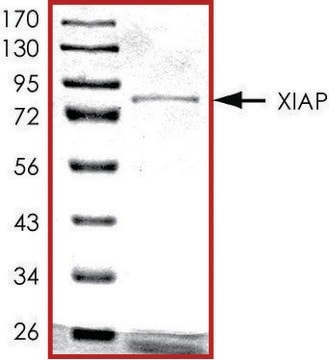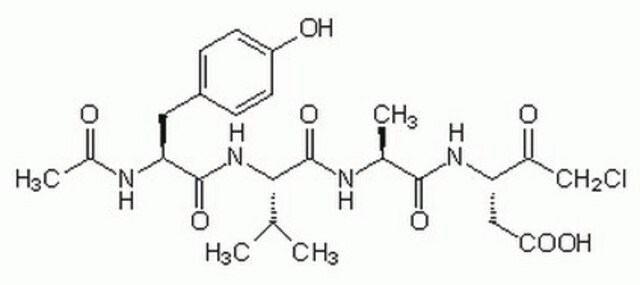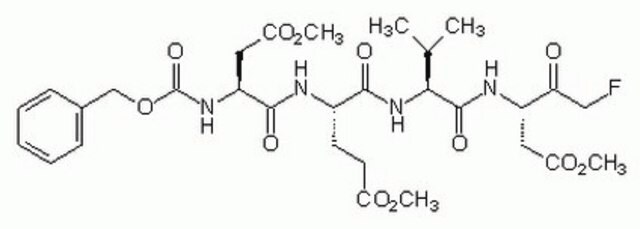SRP0230
XIAP Active human
recombinant, expressed in baculovirus infected insect cells, ≥65% (SDS-PAGE)
Synonym(s):
API3, BIRC4, IAP3, Baculoviral IAP repeat-containing protein 4 (BIRC4), E3 ubiquitin-protein ligase XIAP (MIHA), IAP-like protein (ILP1), Inhibitor of apoptosis protein 3, X-linked inhibitor of apoptosis
About This Item
Recommended Products
biological source
human
recombinant
expressed in baculovirus infected insect cells
Assay
≥65% (SDS-PAGE)
form
aqueous solution
mol wt
57 kDa
packaging
pkg of 20 μg
storage condition
avoid repeated freeze/thaw cycles
NCBI accession no.
UniProt accession no.
shipped in
dry ice
storage temp.
−70°C
Gene Information
human ... XIAP(331)
General description
Application
Biochem/physiol Actions
Unit Definition
Physical form
Preparation Note
Choose from one of the most recent versions:
Certificates of Analysis (COA)
Don't see the Right Version?
If you require a particular version, you can look up a specific certificate by the Lot or Batch number.
Already Own This Product?
Find documentation for the products that you have recently purchased in the Document Library.
Our team of scientists has experience in all areas of research including Life Science, Material Science, Chemical Synthesis, Chromatography, Analytical and many others.
Contact Technical Service








